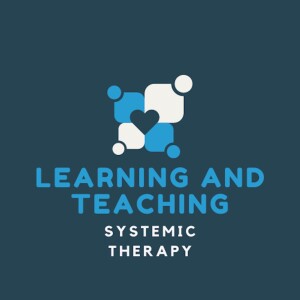
Wednesday Jun 04, 2025
Ep 11: The Power of Deliberate Practice in Training Therapists w/ Dr. Tony Rousmaniere, Rocky Allemandi and Olivia Ng
On the podcast today we have Dr. Tony Rousmaniere, Rocky Allemandi and Olivia Ng from Sentio University.
Tony Rousmaniere, Psy.D. is the President of Sentio University, and the Executive Director of the Sentio Counseling Center. He is also Past-President of the psychotherapy division of the American Psychological Association, and the author of over 20 books on Deliberate Practice and psychotherapy training, including the book series The Essentials of Deliberate Practice (APA Books). In 2017 he published the widely cited article in The Atlantic Monthly, “What your therapist doesn’t know”. Dr. Rousmaniere supports the "open data" movement towards making clinical outcome data available to consumers, policy-makers, and researchers by publishing his clinical outcome data on his website. He is a licensed psychologist in California and Washington.
Rocky Allemandi, is a Licensed Marriage and Family Therapist in the state of California and a certified Deliberate Practice Supervisor through the International Deliberate Practice Society. He currently holds the position of Program Manager for Santa Cruz County Children’s Behavioral Health and serves as Adjunct Faculty in the Marriage and Family Therapy program at Sentio University. Rocky brings extensive experience within the public mental health system, having served in various capacities including clinician, clinical supervisor, and program manager. He is strongly committed to the advancement of high-quality mental health care and is dedicated to the training and professional development of emerging clinicians, with an emphasis on compassionate, accessible, and evidence-informed service delivery.
Olivia Ng is a 22-year-old graduate student at Sentio University. Born and raised in the Bay Area, she has spent the past five years living in Southern California. Her experience at Sentio has given her a deeper understanding of the global psychology community, and she feels honored to be part of it. Olivia earned her bachelor’s degree in psychology from Chapman University in May of last year. Prior to Sentio University’s official launch, she participated in a short internship with the institution. During that time, she was introduced to the concept of deliberate practice, which sparked her curiosity and made her realize what sets Sentio apart from other programs. At the conclusion of the internship, she was offered the opportunity to join Sentio as a student and enrolled immediately following her undergraduate studies.
In this episode, we explored questions about Deliberate Practice and how it can be integrated in MFT training programs. We also discussed Sentio University’s Clinic to Classroom or C2C method of teaching.
- The C2C method brings real clinical work into our learning environment as therapists. How are live sessions, real cases, or practice elements integrated into your C2C curriculum, and how does this differ from traditional simulation or review of raw data in clinical supervision?
- Studies suggest even short exposure to DP can significantly increase empathy and clinical competence. How would you describe your experiences with DP and C2C method to a student peer from another program? Have you noted/tracked any measurable changes in your skill application, confidence, or case outcomes?
- What resistance or challenges have you encountered from instructors unfamiliar with performance-based supervision, and how do you support their transition? Could you share more about any challenges (or the learning curve) you faced when adopting DP methods?
- Another common concern about DP is that some folks are concerned it could force trainees to adopt a specific style of therapy and turn trainees into "therapy robots". Have you heard this concern from students and/or clinician colleagues? What are your thoughts, observations and strategies in relation to this concern when teaching using DP?
- Sentio’s Deliberate Practice Exercise Library and Innovation Lab offer many resources like specific skill-building scenarios and practice videos. How can MFT educators leverage them across asynchronous online delivery formats? Is it possible to use DP in asynchronous online courses and how?
- We are seeing rapid advances in AI-powered tools that can code therapy process data things like turn-taking, affect shifts, reflective statements at scale and with speed that was previously impossible (e.g. systems trained on session transcripts or audio).
How do you see these technologies advance or transform deliberate practice by offering real-time feedback, identifying specific skill gaps, or personalizing practice sequences to the individual learner?
No comments yet. Be the first to say something!